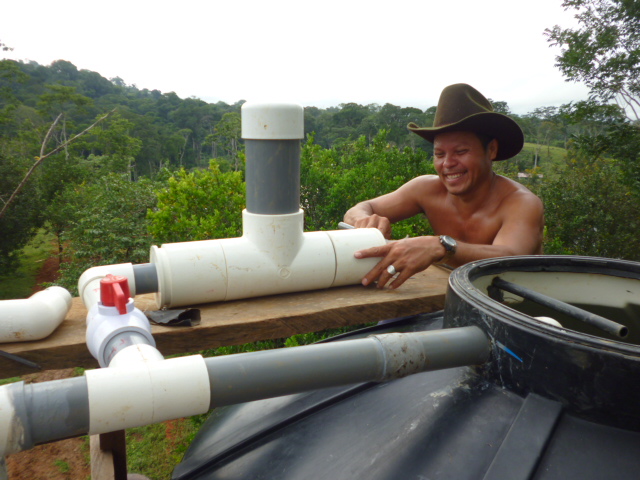Compatible Technology International
Developing and Deploying Affordable Technologies
Location: Central America and the Caribbean, Africa, Asia

Compatible Technology International (CTI): Grantee in 2010, 2011, 2012, 2013, 2014 and 2015.
CTI has a long record of helping poor, rural communities around the globe. Its work started in
CTI has gone on to provide a wide array of useful tools and technologies. It has since designed a number of farming tools and implements, including grinders, shellers, and slicers, that make it easier for farmers in developing countries to process their crops. Among these tools is a ‘pepper eater,’ a device that separates pepper seeds from
In addition, CTI has developed a low-cost, low-maintenance, non-electrical chlorinator that dramatically reduces drinking water contamination in rural communities. These chlorinators were first installed in Nicaragua, serving several thousand villagers. Over time, and with Project Redwood support, the use of these chlorinators has extended to more than 300,000 people.
For more information,
GRANT SUMMARY AND PURPOSE
2010: $20,000 to reactivate 35 chlorinators to serve 15,000 people and deploy an additional 30 chlorinators to serve 10,000 more rural villagers in Nicaragua.
2011: $20,000 to distribute 90 chlorinators across more of rural Nicaragua and serve 57,000 people.
2012: $20,000 to deploy another 120 chlorinators to serve 65,000 people in rural Nicaragua; $15,000 to produce and field test a pepper eater prototype for use by women in rural Ethiopia.
2013: $25,000 for distribution of 130 chlorinators across rural Nicaragua to serve 64,000.
2014: $20,000 to support
2015: $25,000 to deploy additional chlorinators to another 53,000 rural poor in Nicaragua.
IMPACT
Abatement of water contamination, and corresponding mitigation of health impact, on tens of thousands of poor villagers. Further, an estimated $4-12 added to the local economy for every $1 spent on water purification. Improved quality of life for hundreds of thousands in Ethiopia achieved through